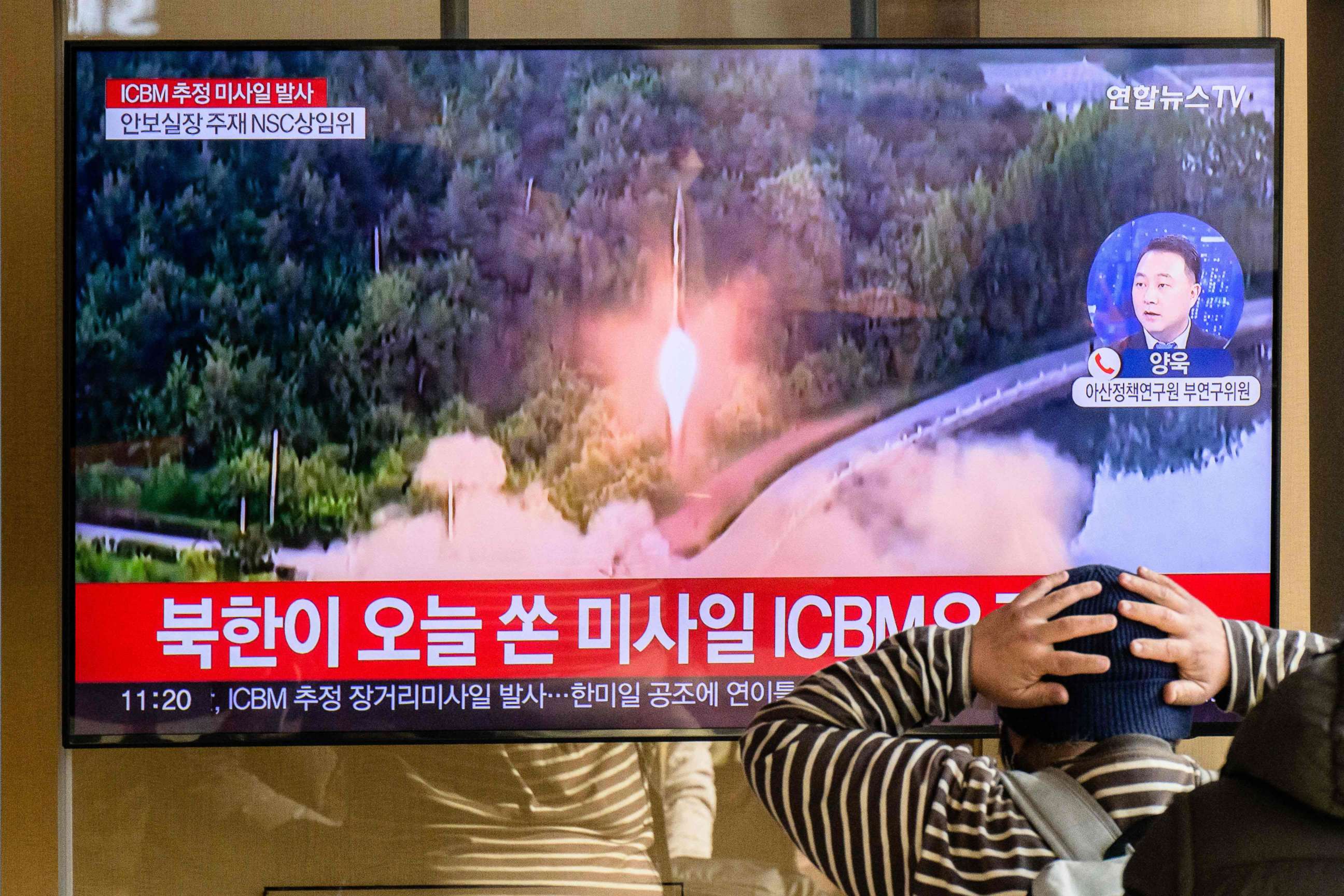North Korea launches test missile with range to hit United States
Biden was briefed on the situation and will continue consultation with allies.
LONDON -- North Korea has fired one of the most powerful intercontinental ballistic missiles it has ever launched with the latest having the potential trajectory to strike the mainland of the United States.
North Korea, which has launched at least 88 ballistic and other missiles this year, fired an ICBM that could travel 9,300 miles or longer, putting the U.S. mainland within its range, according to Japan's defense minister.
Both the militaries of the United States and South Korea militaries are analyzing the data, but North Korea's latest launch -- and its second this month -- involved a missile that covered a distance of 620 miles, according to Japanese and South Korean officials.
The missile had an altitude of 3,700 miles and flew for 69 minutes before it landed about 130 miles off Hokkaido in northern Japan, authorities confirmed.
The commander of the 35th Fighter Wing at the Misawa Air Base located in northern Japan ordered everyone, including service personnel and staff, at the base to seek cover for 23 minutes following the missile launch.

"At this time, there are no additional indications or warnings of an immediate threat to Misawa Air Base," said Commander Michael Richard who issued a seek cover order at 10:33 a.m. as a precautionary measure.
President Joe Biden was briefed on the situation and will continue close consultation with allies, according to a statement released from the White House overnight.
"This conduct by North Korea most recently is a brazen violation of multiple UN Security Resolution. It destabilizes security in the region and unnecessarily raises tensions," said Vice President Kamala Harris, who is in Bangkok attending the Asia-Pacific Cooperative forum (APEC). "We strongly condemn these actions, and we again call for North Korea to stop further unlawful, destabilizing acts. On behalf of the United States, I reaffirm our ironclad commitment to our Indo-Pacific Alliances. Together the countries represented here will continue to urge North Korea to commit to serious and sustained diplomacy."




